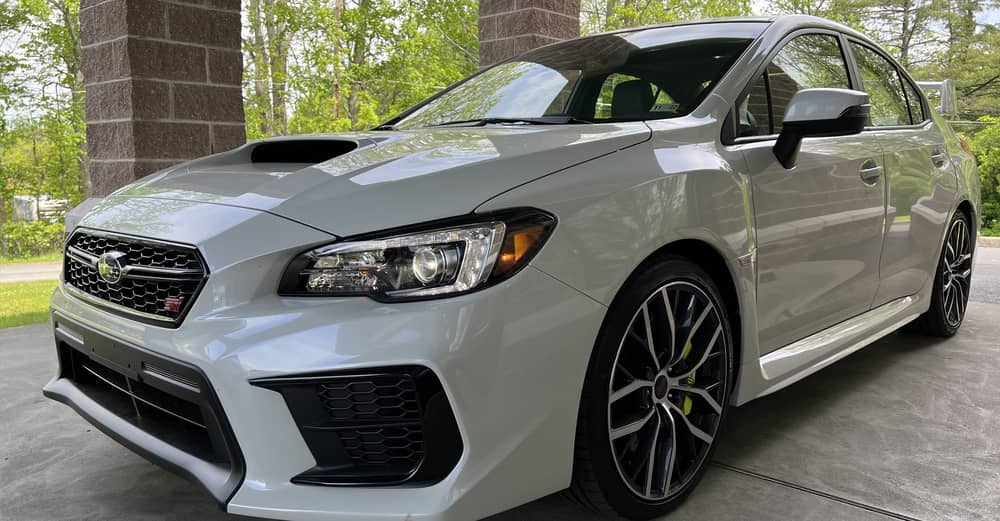Losing a loved one is a difficult experience, and inheriting is now a crucial concern. Transferring ownership of the car is frequently required. So, my dad passed away can I drive his car?
If your father has passed away, you are legally permitted to use his automobile, but you must purchase your own auto insurance for it. It’s crucial to comprehend the procedures involved in legally operating your dad’s vehicle to prevent any legal snags. To make sure you have the proper authorization to drive the vehicle, take care of the insurance and registration issues.
This article will offer guidelines on the common practices and things to keep in mind while inheriting a car when a loved one passes away. It also aids in your decision-making during this trying time.
My Dad Passed Away Can I Drive His Car?

Yes, you are permitted to drive your father’s vehicle after he passed away. You can place the car in your name, but there are a few procedures you need to follow and conditions you need to satisfy.
Ownership and Transfer
The car needs to be legally changed over to your name, which frequently entails going through the probate procedure. Legal systems may use different procedures. To learn about the unique regulations in your area, you should speak with a lawyer or the appropriate authorities.
Insurance
Your dad’s insurance will need to be transferred to your name, therefore you’ll need to inform the insurance provider of his death. Contacting the insurance provider is essential if you need advice because insurance policies can vary.
Registration
In most cases, in order to lawfully operate a vehicle, the registration must be updated with the relevant authorities. You must submit documentation proving ownership and finish the required papers.
Outstanding Debts
Check to see if there are any liens or debts associated with the vehicle that still need to be paid off before ownership can be transferred.
Estate Planning
If your father has a will or estate plan, these papers can include instructions on how the car ought to be handled following his departure.
It is highly recommended to speak with an attorney in order to manage this process legally and smoothly. Following the correct legal procedures correctly could prevent future issues.
Procedure When Inheriting Dad’s Automobile After His Death

You have to make sure that the car is legally and smoothly passed to you once your father passes away. Here is a procedure you can use to handle this scenario:
Confirm Ownership and Gather Documents
Verify that you are the vehicle’s legitimate inheritor. The terms of your dad’s will or the laws governing intestate succession may apply if there is no will.
Collect all the necessary paperwork, including the title to your car, your father’s death certificate, and any inheritance-related legal documents.
Probate Process
Start the probate procedure if it is necessary to officially transfer ownership of the automobile in your jurisdiction. Probate involves resolving your dad’s estate, which may include his assets, debts, and liabilities, as well as validating the will (if there is one).
Notify the Insurance Company
Make contact with your father’s insurance company to advise them of his demise and go over the necessary modifications to the policy. It might be necessary to change the insurance to your name or the name of the legitimate heir.
Update Registration
To change the registration of the vehicle, go to your neighborhood Department of Motor Vehicles (DMV). Typically, you’ll have to present the title as ownership documentation, a copy of the death certificate, and any necessary paperwork.
Pay Outstanding Debts and Taxes
See if the vehicle is the subject of any unpaid loans or liens. Before transferring ownership, some of these might need to be resolved.
Be mindful of any taxes or costs related to the transfer of the car, as they may differ depending on the jurisdiction.
Transfer Title
Fill out the required documentation to change the title of the car to your name or the inheritor’s name. This frequently involves a particular transfer of title form that the DMV offers.
Obtain New License Plates and Registration
Obtain new license plates if necessary, and modify the vehicle’s registration to reflect the ownership change.
Maintain Insurance
Make sure the vehicle is properly insured both before and after the transfer of ownership is complete.
Keep Records
For your records and any future reference, keep a record of all transactions and papers connected to the inheritance and vehicle transfer.
Consult Legal and Financial Professionals
To handle the legal and financial ramifications of inheriting a vehicle, it is advisable to get legal counsel.
Keep in mind that local regulations and practices may differ. Therefore, it is crucial to get professional advice to make sure you follow the right procedures and adhere to all legal obligations throughout this process.
How Do You Transfer a Car Title When the Owner is Deceased?
It is crucial to first make sure you are qualified to transfer the title of the car. Normally, you have to be the rightful heir identified in the decedent’s will.
Next, compile all the paperwork needed for the title transfer procedure. The court must approve the transfer of the automobile if the estate must go through probate. The probate procedure includes settling the estate, certifying the will (if there is one), and choosing an executor to oversee the assets, including the car.
Different states and nations could follow different procedures. To ensure compliance with specific requirements, you must verify with your local authority.
Be ready to provide the required documentation when you visit the DMV. They consist of the filled-out title transfer paperwork, the authentic car title (if available), a copy of the owner’s death certificate, and any other legal records that attest to your authority as the heir or executor. You will need to provide identification, such as a driver’s license or ID card.
There may also be charges and taxes related to the transfer of the title that you must pay. Depending on where you live, different prices may apply.
The DMV will issue a new title in the name of the inheritor or executor after processing your application. To properly insure the vehicle in the name of the new owner, make sure you contact the insurance company and amend the vehicle’s registration with the DMV.
For your records and potential future use as a reference, you must keep track of all transactions, documents, and receipts connected to the title transfer throughout this procedure.
Frequently Asked Questions
What if my dad passed away and my car is in his name?
You must first have proof that the car was left to you in a will. Additionally, the estate has undergone whatever legal procedures are necessary in your state. After that, you take your supporting documents to the DMV to obtain a car title in your name.
Can you transfer the title of a car if the person that owns the car dies in Florida?
The probate process verifies the decedent’s assets and property and establishes the validity of the will. The car title cannot be transferred until the probate is completed. In order to escape probate, the estate must be debt-free. There must first be a resolution of the creditors’ claims if the decedent has any debts.
Read More: What Can Someone Do With Your License Plate Number?
Final Thoughts
It is possible to drive your dad’s car after his passing, but it requires legal and administrative processes. To ensure a successful transfer of ownership, you must adhere to all applicable legal criteria.
